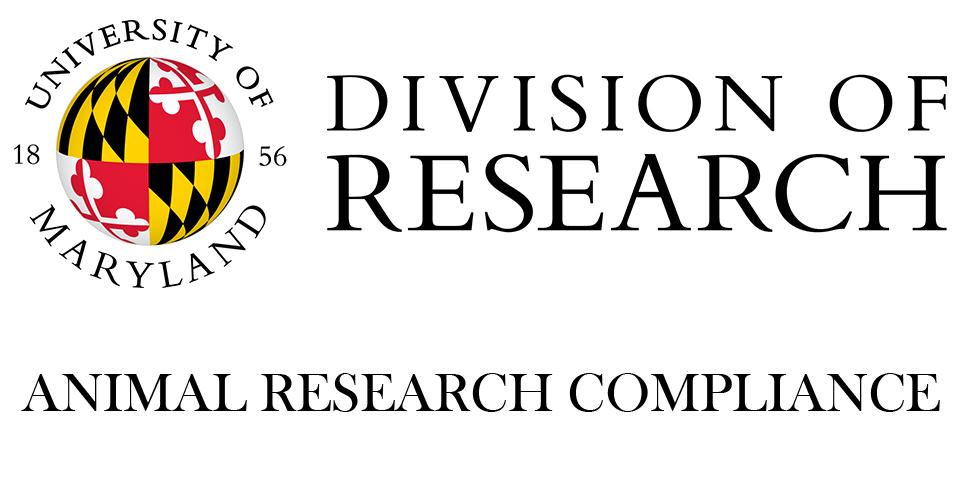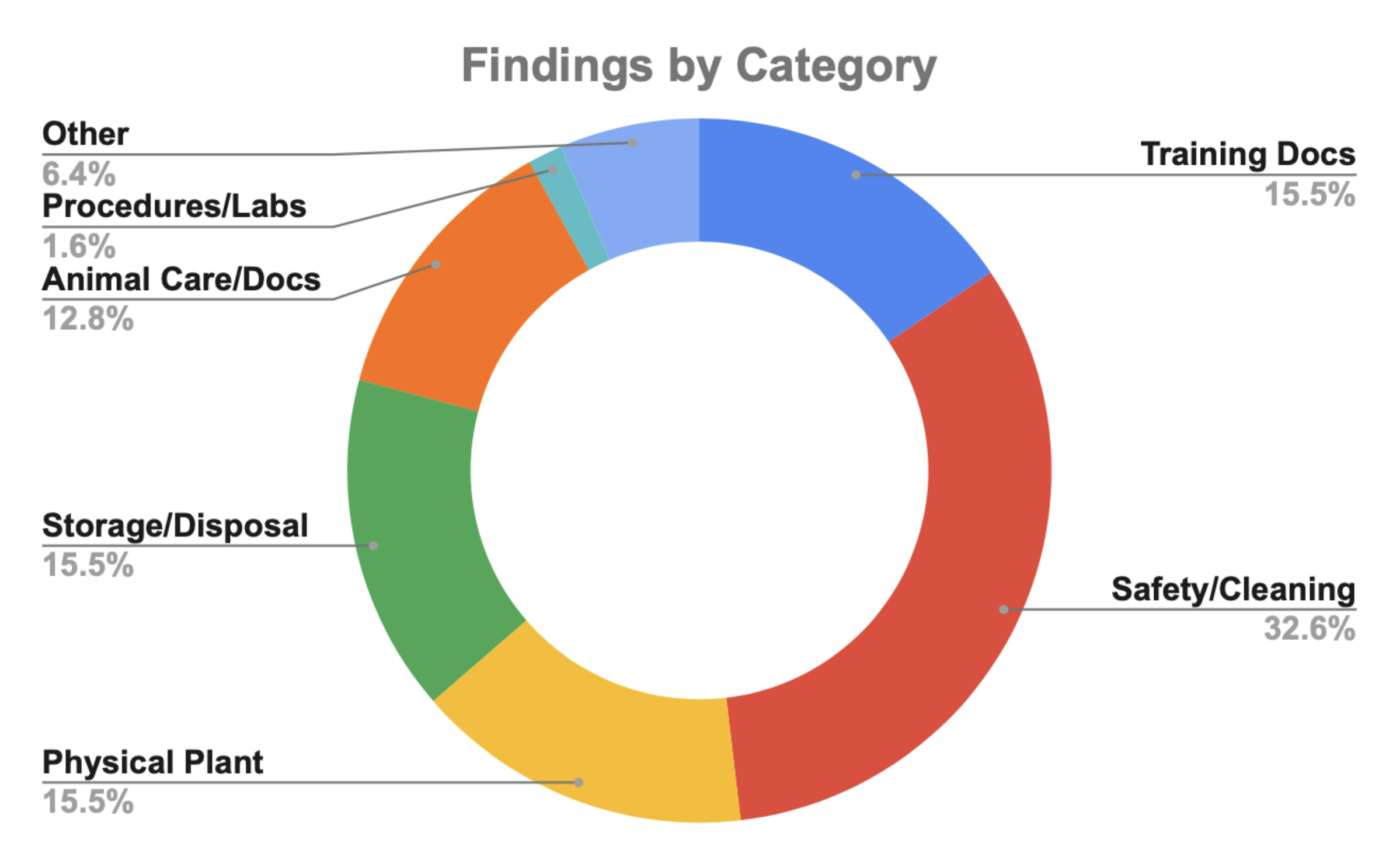
Animal Care and Use Express (CUE) Sheet
A bi-monthly (ish) communication with important information to keep you right on cue!
FY 24-25 | Issue 2
Semi-Annual IACUC Inspections Coming!
Spring semester semi-annual inspections begin in a few weeks (April 1)! Many of you are familiar with the process, but it is helpful to refresh your memory using information on our “Inspections” webpage and the “Inspections” section of our FAQs webpage. Open the accordion menus below for a brief overview, and a quick guide based on the Fall 2024 Inspection.
Why do we perform inspections?
Federal regulations require us to inspect our facilities and review our program at least once every six months. Inspections allow us to ensure the highest quality safety and health of the animals and personnel engaged in animal research activities.
These also provide us with an opportunity to self-inspect our spaces to identify programmatic and ongoing deficiencies before they become reportable non-compliance issues.
What spaces get inspected?
ALL areas in which live animals are housed, undergo procedures (such as surgery) or are euthanized and also…
ALL areas that are utilized for animal research support including storage areas, cage wash areas, corridors within dedicated large vivaria, imaging facilities, and more.
These areas include centralized and satellite facilities where animal care is provided by dedicated staff, as well as Principal Investigator, or PI-managed facilities where animal care is completely provided by the PI and/or other trained lab members.
Who performs the inspections?
Generally speaking, at least two members of the IACUC must be present at the inspection of each space, and all members of the IACUC are invited to participate in the inspection of any space.
For larger spaces, like farms of vivaria, the IACUC may use larger groups or sub-groups of inspectors who will look at different parts of the facility.
How can I prepare for an inspection?
Broadly, inspectors look for findings pertaining to information found in regulatory documents like the Animal Welfare Act and the PHS Policy, as well as publications like the Guide, the Ag Guide, and others. We also have institutional standards and guidelines.
We know that UMD researchers and facilities personnel operate in compliance with those documents listed above, so no special preparation should be required. We provide our Inspection Checklist publicly on our website and in IRBnet for all inspectors and researchers to refer to at any time, but it is especially important to familiarize yourself with the checklist before each inspection round.
We encourage you to perform your own self-inspection of your spaces using our checklist prior to inspections!
We have been able to digest data from the Fall ‘24 semi-annual inspection to provide some guidance on things to look out for:
- COMMON FINDING CATEGORIES | These are findings that we encounter in many different types of animal facilities, but each space is unique!
- Training and Documentation | These findings pertain to required lab personnel training and in-date documentation of such. Commonly, Section 2 items on the Checklist.
- Safety/Cleaning | These findings pertain to avoidable occupational, first aid and biosafety issues for humans and animals. Commonly, Section 3 items on the Checklist.
- Physical Plant | These findings pertain to issues with the physical space in which animal activities take place. Commonly, items 3.a.i-iv on the Checklist.
- Storage/Disposal | These findings pertain to issues with the storage of items used in animal activities, and the systems for managing the storage of those items to include temperature and humidity, expiration dates, and more. Commonly, Section 4 items on the Checklist.
- WHERE ANIMALS ARE HOUSED/PRESENT | These are findings that we look for when animals are continuously housed in a space or if they happen to be in the space during the inspection visit.
- Animal Care/Docs | These findings pertain to issues regarding the care and welfare of animals, including health checks, identification, environmental considerations, transportation and more. Commonly, Section 5 items on the Checklist.
- OTHER SPECIAL USE AND SUPPORT AREAS | These findings pertain to areas where animals may or may not be brought to, but are imperative for quality animal care.
- Procedures/Labs | These findings apply to surgical suites and spaces which require special documentation and sanitation. Commonly, Section 8 items on the Checklist.
- Other | These findings pertain to signage requirements, cage wash and autoclaves as they relate to proper use. Commonly, Sections 1, 7 and 9, respectively.

- Improved in all categories except for Physical Plant and Training Documentation.
- Please check that previously cited physical plant deficiencies are repaired, and check the training status and enrollment for all of your lab personnel.
- Up to date training documentation must also be kept in a log in your lab.
- Ensure that new personnel are aware of lab procedures and have access to protocols and SOPs pertaining to your research.
- Most Safety/Cleaning items related to general cleanliness, eyewash maintenance and documentation, expiration dates and labeling of reagents, and pest control.
- Ensure that your spaces are free of clutter, dust and debris, and that cleaning implements are not stored directly on the floor.
- Eyewash stations should be flushed weekly and documentation should be updated each time.
- Check expiration dates of cleaning supplies and provide appropriate labels of date opened/mixed if applicable.
- Pest control traps should be maintained and documented. Issues should be reported to Travis Kramer at tkramer@umd.edu. Keep documentation of communications.
- Pest traps should be small, low-level adhesive insect traps that will not trap rodents.
- Check expiration dates of drugs and other medical supplies, and ensure proper labeling if applicable (e.g., expired drugs labeled “not for use in survival surgeries”).
- Opened feed/bedding/enrichment and cage supplies should be stored in sealable, sanitizable containers and labeled with expiration dates and sanitation dates.
- Be aware of proper sanitation schedules.
- Ensure that food is stored at proper temperatures and documented.
- Animal health must be checked daily, and records must be updated and available.
- Sick and deceased animals must be reported to the AV.
- If applicable, USDA-regulated documentation must be available and complete.
Other Mid-Semester Reminders
- A version of these emails and other important announcements are now archived on the IACUC website "News & Announcements" page for your reference.
- The UAV and DLAR would like to remind you to submit all animal health reports when appropriate to dlar@umd.edu.
- We would also like to remind all PI's who manage their own animal housing areas to send all census numbers monthly to this Box Folder.
Important Dates
AWIC's "Meeting the Requirements of the Animal Welfare Act Workshop"
CANCELLED! There is an on-demand workshop page that may be a useful resource though, and we encourage our PIs to brush up on literature search requirements.
The National Agricultural Library's Animal Welfare Information Center at the USDA is offering an informative workshop regarding the information requirements outlined by the Animal Welfare Act. The workshop is two half-day sessions and will provide an in-depth overview of 3Rs, instruction on advanced search techniques, and a demo of hypothetical literature searches for alternatives to painful and distressful procedures.
| Meeting Dates: | Submission for Pre-Review by: |
|---|---|
| March 27, 2025 | February 15, 2025 |
| April 24, 2025 | March 15, 2025 |
| May 22, 2025 | April 15, 2025 |
| June 26, 2025 | May 15, 2025 |
| July 31, 2025 (rescheduled from July 24, 2025) | June 15, 2025 |
| NO AUGUST MEETING | |
| September 18, 2025 | August 15, 2025 |
| October 23, 2025 | September 15, 2025 |
| November 20, 2025 | October 15, 2025 |
| December 18, 2025 | November 15, 2024 |
New PI/Animal User Training is required for all new PIs, students, assistants, etc., who will work directly with animals. This includes all handling, husbandry, procedures, transportation, etc.
Click here to register for NEW PI/Animal User Training
Refresher PI/Animal User Training is required every 3 years in order to continue working with animals.
Click here to register for REFRESHER PI/Animal User Training
| New PI/Animal User Training Dates: | Refresher PI/Animal User Training Dates: |
|---|---|
| March 13, 2025 at 12 pm | March 18, 2025 at 8 am |
| March 20, 2025 at 12 pm | April 2, 2025 at 1 pm |
| March 28, 2025 at 10 am | April 17, 2025 at 2 pm |
| March 31, 2025 at 8 am | April 30, 2025 at 10:30 am |
| April 10, 2025 at 10 am | May 15, 2025 at 2 pm |
| April 15, 2025 at 12 pm | May 26, 2025 at 10:30 am |
| April 23, 2025 at 1 pm | |
| May 1, 2025 at 2 pm | |
| May 12, 2025 at 12 pm | |
| May 23, 2025 at 12 pm | |
| May 28, 2025 at 10 am |
Dates and times are subject to change/cancellation.
